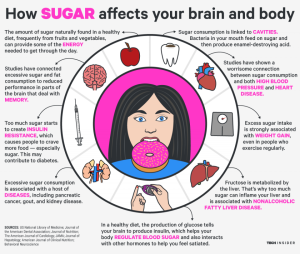
A balanced diet is essential for a healthy body and mind. It provides us with the necessary nutrients, vitamins, and minerals to function optimally and reduces the risk of various diseases. However, with our busy lifestyles and the abundance of unhealthy food options, it can be challenging to maintain a balanced diet. In this article, we will provide you with 10 helpful tips to ensure that you are nourishing your body with the right foods.
1. Include a Variety of Food Groups
Consuming a diverse range of food groups ensures that you receive a wide range of nutrients. Aim to include vegetables, fruits, whole grains, lean proteins, and healthy fats in your daily meals. Experiment with different recipes and ingredients to keep your meals interesting and enjoyable.
2. Portion Control
Pay attention to your portion sizes to avoid overeating. Use smaller plates and bowls to help control your portions. It’s also beneficial to familiarize yourself with recommended portion sizes for different food groups.
3. Eat Regularly
Avoid skipping meals, especially breakfast. Eating regular, balanced meals throughout the day helps regulate your metabolism and keeps your energy levels stable. Include healthy snacks between meals to keep hunger at bay.
4. Hydrate Well
Water is essential for overall health. Aim to drink at least 8 glasses of water per day. Hydrating properly helps maintain healthy digestion, keeps your skin radiant, and prevents dehydration.
5. Limit Processed Foods
Highly processed foods often contain added sugars, unhealthy fats, and artificial ingredients. Try to reduce your consumption of processed snacks, fast food, and sugary beverages. Opt for whole, unprocessed foods as much as possible.
6. Plan Ahead
Planning your meals in advance allows you to make healthier choices. Create a weekly meal plan, make a grocery list, and stick to it. By doing this, you’re less likely to resort to unhealthy options when hunger strikes.
7. Practice Mindful Eating
Eating mindfully involves paying attention to your body’s hunger and fullness cues. Take your time to chew your food properly and savor each bite. Avoid distractions such as watching TV or using your phone while eating to fully enjoy your meals.
8. Moderate Sugar and Salt Intake
Excessive consumption of sugar and salt can lead to various health problems. Choose natural sweeteners like honey or maple syrup and use herbs and spices to enhance the flavor of your meals instead of relying on excessive salt.
9. Be More Active
Incorporate regular exercise into your lifestyle. Physical activity helps maintain a healthy weight, boosts your metabolism, and improves overall well-being. Aim for at least 30 minutes of moderate exercise most days of the week.
10. Allow for Occasional Indulgences
Maintaining a balanced diet doesn’t mean complete deprivation. Enjoying your favorite treats or indulging occasionally is perfectly fine. The key is moderation and incorporating them into an overall healthy eating plan.
Conclusion
Achieving and maintaining a balanced diet is an ongoing process that requires commitment and self-discipline. By implementing these 10 tips, you will be well on your way to nourishing your body with the right foods, improving your overall health, and preventing chronic diseases.

